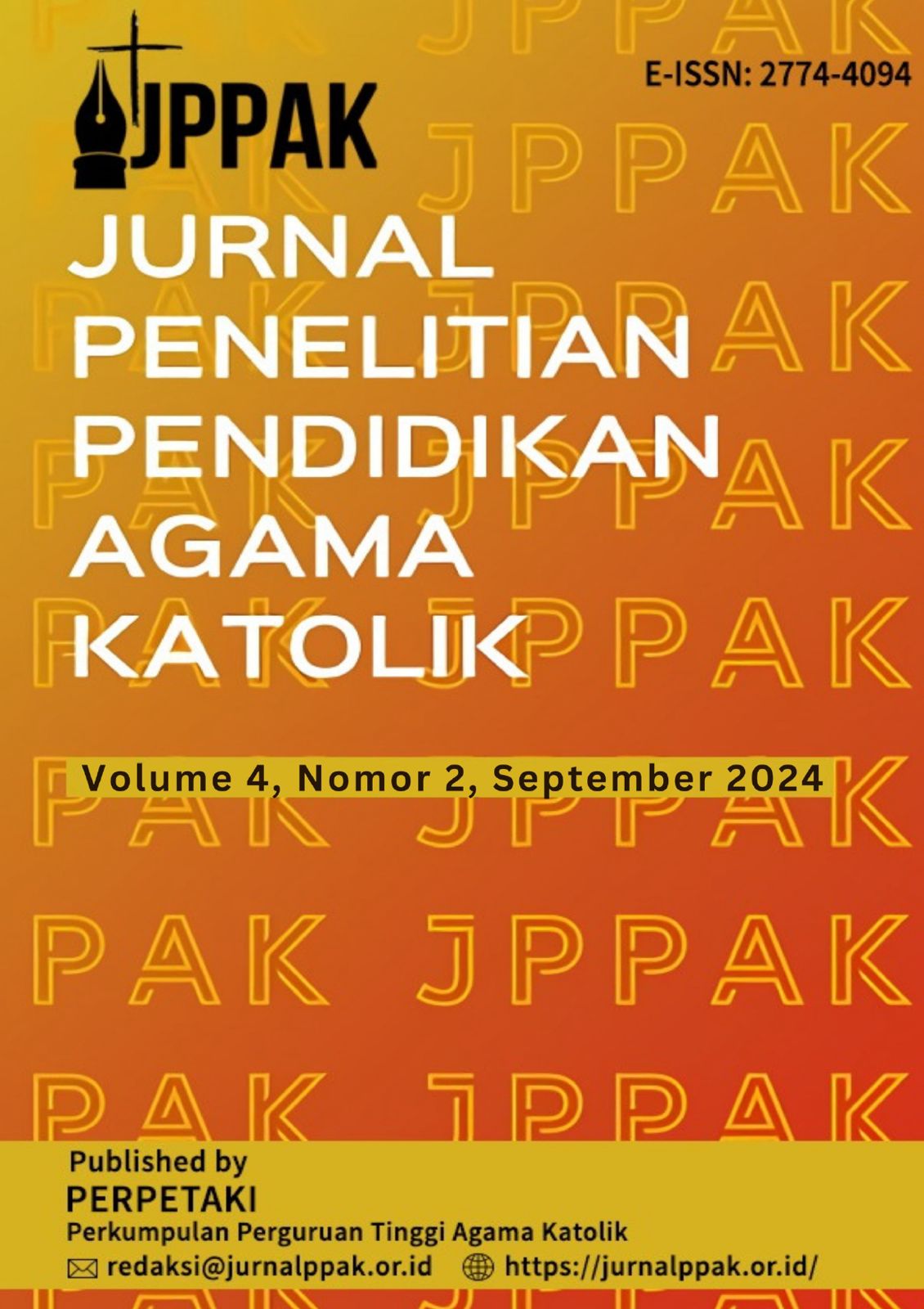The Effect of the Application of Problem-Based Learning in Statistics Courses on the Interest of Catholic Religious Education Students to Conduct Quantitative Research
DOI:
https://doi.org/10.52110/jppak.v4i2.139Keywords:
Problem-based Learning, Statistics, Interest, Quantitative Research, Catholic Religious EducationAbstract
This research examines the effect of implementing Problem-based Learning (PBL) in the Statistics course on the interest of Catholic Religious Education (CRE) prospective teachers students at the Sekolah Tinggi Agama Katolik Negeri Pontianak in conducting quantitative research. This study was conducted in response to the low interest of students in conducting quantitative research. In this study, student interest was measured using a 4-point Likert scale that reflects the highest phase of interest, which is well-developed individual interest. The results of the research show that the implementation of PBL in the Statistics course has a moderate impact on the interest of PKK students in conducting quantitative research. In the discussion, this research reveals that PBL encourages collaboration, concept understanding, and problem-solving together, which increases students' interest in conducting quantitative research. Furthermore, the research results also indicate that PBL makes the Statistics course more engaging and less boring for students who were previously hesitant about mathematics.
Downloads
##submission.downloads##
Submitted
Accepted
Published
How to Cite
Issue
Section
License
Copyright (c) 2024 Varetha Lisarani

This work is licensed under a Creative Commons Attribution-ShareAlike 4.0 International License.
Copyright Notice and Permissions
Jurnal Penelitian Pendidikan Agama Katolik offers immediate open access to all its content on the principle to make researches freely available to the public, especially to the scholars, to support greater global exchanges of knowledge. This journal encourages all scholarly authors to allow their research openly available, free access and without time restrictions.
All articles published Open Access will be immediately and permanently free for everyone to read and download. Under the CC BY-SA 4.0 license, authors retain ownership of the copyright for their article, however authors grant others permission to use the content of publications in Jurnal Penelitian Pendidikan Agama Katolik (JPPAK) in whole or in part provided that the original work is properly cited. Users (redistributors) of Jurnal Penelitian Pendidikan Agama Katolik (JPPAK) are required to cite the original source by including at least: the full title of the article, the author's or authors' full name(s), JPPAK as the initial source of publication, year of publication and volume number using a propriate citing method.
Copyright encompasses exclusive rights to reproduce and deliver the article in all form and media, including reprints, photographs, microfilms and any other similar reproductions, as well as translations. The reproduction of any part of this journal, its storage in databases and its transmission by any form or media, such as electronic, electrostatic and mechanical copies, photocopies, recordings, magnetic media is prohibited without consent of Jurnal Penelitian Pendidikan Agama Katolik (JPPAK).
Jurnal Penelitian Pendidikan Agama Katolik (JPPAK) is licensed under a Creative Commons Attribution Share-Alike 4.0 International. (CC BY-SA 4.0)
Authors who publish with Jurnal Penelitian Pendidikan Agama Katolik (JPPAK) agree to the following terms:
- Authors retain copyright and grant the journal right of first publication with the work simultaneously licensed under a Creative Commons Attribution Share-Alike 4.0 International (CC BY-SA 4.0) license that allows others to share the work with an acknowledgement of the work's authorship and initial publication in this journal.
- Authors are able to enter into separate, additional contractual arrangements for the non-exclusive distribution of the journal's published version of the work (e.g., post it to an institutional repository or publish it in a book), with an acknowledgement of its initial publication in this journal.
- Authors are permitted and encouraged to post their work online (e.g., in institutional repositories or on their website) after the publication on JPPAK, as long as it not published on other OJS for it will be treated as plagiarism by plagiarism checker apps. It can lead to productive exchanges, as well as earlier and greater citation of published work (See The Effect of Open Access).












